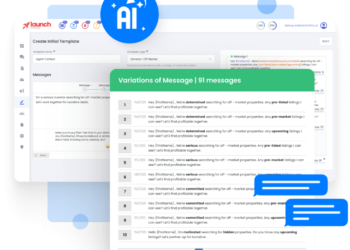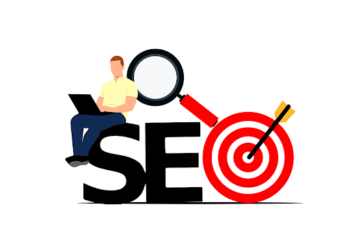Did you know that companies that make use of data-driven marketing garner returns that are 5-8 times more than their initial investment? With the aid of thorough customer understanding, companies can opt for strategies that enhance engagement with their customers, enhance the experiences of the customers, and enhance revenues.
After examining the results, it turned out that around 63% of marketing practitioners have claimed that some of their business-related activities have been sustainable, which surely indicates that many more are interested in the other aspects of data and its usage in whatever forms of business activity.
What is Data-Driven Marketing?
Solving problems has been a part of marketing, and right now every recommendation and every decision has become data marketing thanks to data and how it has mastered this art.
Data-driven means that instead of ‘trying their luck,’ or making assumptions and estimates about target customers, they respect the real numbers and make informed choices. Such data can be acquired from several sources such as customer activity, social interactions, and site activities among other aspects of a business.
Key Benefits of Data-Driven Marketing
1. Deeper Customer Insights
Data analysis is important in assisting marketers in identifying target customers and what their needs and wants expect which gives a result in marketing that is quantitative. Buyers tend to have a greater tendency to make purchases with brands that have personalised their services.
2. Increased ROI and Profitability
Businesses that use predictive analytics almost double the metrics points since they meet the set revenue targets when compared to businesses that do not use these analytics at all. Also, properly strategising fragmented email campaigns could result in a 760% increase in revenue, illustrating the significance of thoroughly planned and data-driven campaigns.
3. Improved Decision-Making
Companies say data is the new oil and companies that are data-driven have six times the chances of making profits. This competitive edge comes from a strong analytical backbone which enables the organisation to assess the situation and respond amazingly to market opportunities.
How Agencies Use Data
Marketing agencies such as MagnifyLab leverage data insights to transform how businesses approach digital marketing strategies, driving measurable results.
Data-Driven Strategy Development: Agencies gather and examine consumers’ behavior and demographic information alongside market trends and develop specific marketing strategies that fit the targeted consumers.
Predictive Analytics: The trend now seems to be the use of Predictive Analytics as a forecast campaign tool since they allow for easier business planning & execution in the future which results in being able to get trends and future clients based on previous campaigns.
Performance Tracking and Optimisation: In what seems to be a revolutionizing change in impact measurement, advanced technology offers multinational companies the infinite ability to monitor campaign results and determine the necessary changes required to keep them working effectively.
Personalisation at Scale: Campaigns can be more target-oriented as marketing messages and content can be created to fit the individual customers making data science more productive in engagement and conversion rate.
Holistic Data Analysis: Different channels enable marketers to reach every individual’s basic needs and hence increase the conversion as well as engagement rates as it cuts across the very science of marketing and communication.
Future Trends in Data-Driven Marketing
- Thanks to customer data: their needs and spending habits, these firms are capable of devising more precise and suitable marketing campaigns for the intended audience. This would mean getting correct and usable data for marketers in their activities.
- Complicated Consumer Pathways: Consumers now interact with brands on various touchpoints and devices. It is becoming increasingly important to explain such cross-consumer behaviors with a single conceiving experience that’s present throughout the entire customer’s journey.
- Heightened Personalisation Expectations: The average consumer expects brands to personalise their shopping experience to the highest level. Brands are increasingly utilising high-end technologies and AI engines to provide targeted solutions for customers, resulting in increased interaction with the brand and loyalty.
- Declining Brand Loyalty: The availability of many choices has aided the decline in brand loyalty. There is a need for marketers to work on building relationships and providing sufficient experience to customers so as to avoid losing them to competitors.
When implementing a data-driven model, the marketer’s activity of targeting older audiences by segments was mentioned by 45 % of them as a major problem.
- Integration of Data Tools: Bringing together several data tools and platforms is essential for obtaining the full view of customer information. It also facilitates the development of effective marketing strategies and the enhancement of decision-making processes.
- Influence of AI and Automation: AI and automation are revolutionising data-driven marketing by streamlining data-intensive activities and providing real-time data parts. As a result, it is possible to adjust campaigns faster, max out targeting, and increase efficiency across the board.
AI usage in data-driven marketing: The statistics are equally interesting, nearly half, or 48%, of all executives surveyed, admit that to some extent, they make use of AI technologies as part of their marketing policy, whereas 25% of marketers did not address the use of such marketing policies at all.
Challenges of Implementing Data-Driven Marketing
Data-driven marketing, despite the above merits, has its issues and complications.
1. Data Collection and Management
Almost half of newly generated data is erroneous or defective and leads to bad decisions. Also, organisations frequently have imprecise objectives or strategies and therefore do not seize chances appropriately.
2. Privacy and Compliance Issues
The only thing that is striking in these provisions on the protection of personal data is the risk-of-damage assessment during the data flow. As the data exists there are still people who will not do business with companies that abuse their data. 79% as per the poll surveyed people would agree on this. Thus the persuasion.
Conclusion
The marketer has understood that in the context of the current marketing environment, it is impossible to abandon the use of data marketing tools.
If the majority of marketers have succeeded in using this method, it implies that the emphasis on tailored prospects, first-party data, and deep analytics has completely altered how companies interact with their clients for the better.












